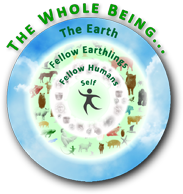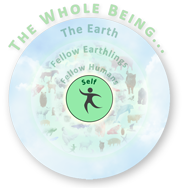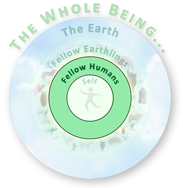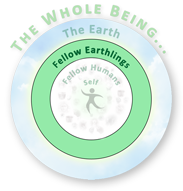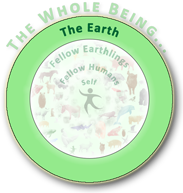Resource Library
To narrow down the list to only resources personally endorsed by CNCL, tick the “CNCL-Endorsed” box.
Please let us know if you find any errors or dead links.
Click here
for a list of…![]()
Broad-Coverage Independent News
& Media Sites
Blog. “Welcome to the healthy, compassionate world of Main Street Vegan! I’m Victoria Moran, and I’ve been vegan for over three decades. This way of living becomes more rewarding, and more important, all the time, and I’d love to share its joys with you.” “The tide is turning against the practice of fur production within Europe as concerns about animal welfare and the ethics of fur continue to grow. Consequently, various countries in Europe have already prohibited fur farming (the United Kingdom, Austria, Croatia, Slovenia, the Republic of Macedonia) and/or are presently phasing-out fur farming (the Netherlands, Czechia, Bosnia and Herzegovina, Serbia and Norway), but further measures are needed.” Film: “This documentary film explores the political life and ideas of Noam Chomsky, a linguist, intellectual, and political activist. Created by two Canadian independent filmmakers, it expands on the ideas of Chomsky’s earlier book, Manufacturing Consent: The Political Economy of the Mass Media, which he co-wrote with Edward S. Herman. The film presents and illustrates Chomsky’s and Herman’s propaganda model, the thesis that corporate media, as profit-driven institutions, tend to serve and further the agendas of the interests of dominant, elite groups in the society. A centerpiece of the film is a long examination into the history of The New York Times’s coverage of Indonesia’s invasion and occupation of East Timor, which Chomsky claims exemplifies the media’s unwillingness to criticize an ally. Until the release of “The Corporation” (2003), it was the most successful documentary in Canadian history, playing theatrically in over 300 cities around the world; winning 22 awards; appearing in more than 50 international film festivals; and being broadcast in over 30 markets. It has also been translated into a dozen languages.” “Funny, provocative and surprisingly accessible, the film explores the political life and ideas of Noam Chomsky, world-renowned linguist, intellectual and political activist. A mammoth two-part project, the film is nonetheless light on its feet, favoring a style that encourages viewers to question its own workings, as Chomsky himself encourages his listeners to extricate themselves from the “web of deceit” by undertaking a course of “intellectual self-defense.”” Book: “In this pathbreaking work, Edward S. Herman and Noam Chomsky show that, contrary to the usual image of the news media as cantankerous, obstinate, and ubiquitous in their search for truth and defense of justice, in their actual practice they defend the economic, social, and political agendas of the privileged groups that dominate domestic society, the state, and the global order. Based on a series of case studies—including the media’s dichotomous treatment of “worthy” versus “unworthy” victims, “legitimizing” and “meaningless” Third World elections, and devastating critiques of media coverage of the U.S. wars against Indochina—Herman and Chomsky draw on decades of criticism and research to propose a Propaganda Model to explain the media’s behavior and performance. Their new introduction updates the Propaganda Model and the earlier case studies, and it discusses several other applications. These include the manner in which the media covered the passage of the North American Free Trade Agreement and subsequent Mexican financial meltdown of 1994-1995, the media’s handling of the protests against the World Trade Organization, World Bank, and International Monetary Fund in 1999 and 2000, and the media’s treatment of the chemical industry and its regulation. What emerges from this work is a powerful assessment of how propagandistic the U.S. mass media are, how they systematically fail to live up to their self-image as providers of the kind of information that people need to make sense of the world, and how we can understand their function in a radically new way.” “Maple Farm Sanctuary is an animal sanctuary providing lifelong homes for abused, abandoned and unwanted farmed animals while promoting veganism and respect for all life through public information. Maple Farm Sanctuary has taken in a fraction of the billions of farmed animals that are bought, sold, tormented and slaughtered by the meat, dairy and fur industries. At Maple Farm Sanctuary, we strive to treat both humans and non-humans as individuals who are worthy of compassion and respect, where we pursue a vegan diet and a non-violent lifestyle and where our stewardship of these 120 acres of beautiful Massachusetts farmland and wildlife habitat is a sacred trust. We ourselves once raised and sent to slaughter animals as a means of making a living. As a result of a profound change of consciousness, we now choose to see the world and animals in a very different light. We have dedicated our lives to completing our transformation from animal farmers to animal rescuers and caretakers, and to sharing what we have discovered along the way with as many people as possible.” “Veganic farms can be found across the country, but until today, finding them required detective work. Thanks to the work of Professor Mona Seymour at Loyola Marymount University, we are excited to share a map of self-identified veganic, vegan organic, and stockfree organic farms in the United States. The map also includes farms that identify with a method that is veganic in its nature. For the purposes of this mapping project, veganic is defined as growing organically and without inputs from farmed (or formerly farmed) animals. All farms listed here have commercial, charity, educational, or research components (on top of any subsistence function that the farm may have) – they are farms that bring veganic produce or knowledge to a broader community. These farms grow vegetables, fruits, grains, and other food items; the map does not include marijuana farms. Some of the farms on this map are not entirely veganic but might be featured because they exclusively use veganic methods on some of their fields. Click on the dots for details about each farm.” “Documentary filmmaker James LaVeck shares personal stories about becoming a social justice artist. He explains how any motivated individual can overcome obstacles to living a meaningful life and making a difference for those most in need. James describes how he and fellow filmmaker Jenny Stein have come into contact with some of the best and worst of humanity during their 18 years of partnership at Tribe of Heart. Pursuing a path of conscience inevitably leads to unexpected challenges, but it also promises deep rewards, and an unending adventure of the heart and mind.” “Marti Kheel was a prominent writer and activist in the areas of ecofeminism, animal advocacy, and environmental ethics and author of the recently published Nature Ethics: An Ecofeminist Perspective. Her articles have been widely published in journals and anthologies both within the United States and abroad.” Book: “Using the Civil Rights struggle as his historical perspective, the author has created a detailed and absorbing chronicle of Martin Luther King’s leadership during the most tumultuous period in America’s recent past.” Book: “Marshall Frady, the reporter who became the unofficial chronicler of the civil rights movement, here re-creates the life and turbulent times of its inspirational leader. Deftly interweaving the story of King’s quest with a history of the African American struggle for equality, Frady offers fascinating insights into his subject’s magnetic character, with its mixture of piety and ambition. He explores the complexities of King’s relationships with other civil rights leaders, the Kennedy and Johnson administrations, and the FBI’s J. Edgar Hoover, who conducted a relentless vendetta against him. The result is a biography that conveys not just the facts of King’s life but the power of his legacy.” “This exercise helps a group match tactics (specific actions) and the objectives to reach the campaign’s goals. This exercise is helpful when a group has not fully decided on action plans.” (2 page pdf) Book: “The author of Diet for a New America shows how we can significantly improve ourselves and the world by changing the way we eat. May All Be Fed explains why so few have so much to eat and why so many have so little, and it shows how everyone can make a difference by altering food choices.” “The purposes of the “Mayors for Peace” are to contribute to the attainment of lasting world peace by arousing concern among citizens of the world for the total abolition of nuclear weapons through close solidarity among member cities as well as by striving to solve vital problems for the human race such as starvation and poverty, the plight of refugees, human rights abuses, and environmental degradation.” “This is the official, full-length (81 min) version of our 2005 documentary, McLibel…The first documentary from renowned director Franny Armstrong (The Age of Stupid, Drowned Out), McLibel tells the true story of two ordinary people who battle McDonald’s in what became known as “the biggest corporate PR disaster in history” (Channel 4 News). “ “Hello. And welcome. To McSpotlight. The biggest, loudest, most red, most read Anti-McDonald’s extravaganza the world has ever seen. Anything you could possibly want to know about McDonald’s or McLibel nestles somewhere in our 21,000 files. Don’t get us wrong, though, we’re not telling you to give up your Big Macs. We just provide the info for you to judge for yourself.” “The report presents a global perspective on the impacts of industrial meat and dairy production, and illustrates its increasingly devastating impact on society and the environment. The way we produce and consume meat and dairy needs a radical rethink. The Meat Atlas aims to catalyse the debate over the need for better, safer and more sustainable food and farming and advocates clear individual and political solutions.” (68 page pdf) “EWG’s Meat Eater’s Guide to Climate Change + Health can help you green your diet. It provides useful information about the climate, environmental and health impact of your protein choices…To assess climate impacts, EWG partnered with CleanMetrics, an environmental analysis and consulting firm, to do lifecycle assessments of 20 popular types of meat (including fish), dairy and vegetable proteins. Unlike most studies that focus just on production emissions, our assessment calculates the full “cradle-to-grave” carbon footprint of each food item based on the greenhouse gas (GHG) emissions generated before and after the food leaves the farm – from the pesticides and fertilizer used to grow animal feed all the way through the grazing, animal raising, processing, transportation, cooking and, finally, disposal of unused food.” “Directed by Mayank Jain and conceptualized by Shri Jai Kishan ‘JK’ Jhaver, this science-based film raises issues about the role of poor lifestyle—especially improper eating habits—in the spread of chronic diseases like cancer, cardio vascular diseases, diabetes, kidney disorders, neurological problems etc. The prevalent western diet results in consumption of huge amounts of animal proteins, dietary cholesterol, saturated fats and harmful chemicals which play a key role in the spread of life-threatening disorders. This diet, unlike a whole-foods-plant-based diet, lacks ‘good-health-agents’ like dietary fiber, anti-oxidants and phyto-nutrients. Owing to higher intake of animal-based food and fast foods, there is an abnormally high increase in the spread of colorectal cancers, heart problems, kidney failures and type-2 diabetes throughout the world. The film gives plenty of evidence to portray the negative influence of bad diets to human health—by drawing heavily from studies carried out by topmost international medical institutions. The data shows conclusively that some of the most dangerous chronic diseases could not only be controlled but even reversed with help of a low-fat-whole-foods-plant-based diet.”Found 1997 Results
Main Street Vegan blog
![]()
Make Fur History
![]()
Manufacturing Consent: Noam Chomsky and the Media
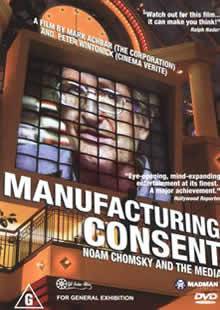
Manufacturing Consent: Noam Chomsky and the Media (1992)
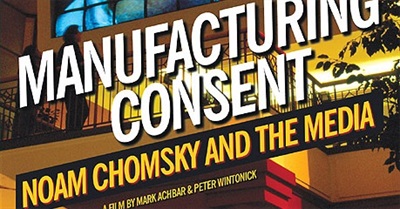
Manufacturing Consent: The Political Economy of the Mass Media
Maple Farm Sanctuary

Mapping veganic farms in the United States
![]()
Marching to a Different Drummer
![]()
Marti Kheel
![]()
Martin Luther King, Jr., on Leadership: Inspiration and Wisdom for Challenging Times
Martin Luther King, Jr.: A Life
Matrix Exercise
![]()
May All Be Fed: ‘a Diet For A New World : Including Recipes By Jia Patton And Friends
Mayors for Peace

McLibel: full documentary (Official)
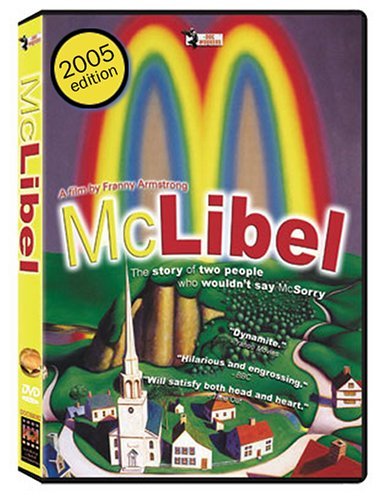
McSpotlight

Meat Atlas: facts and figures about the animals we eat
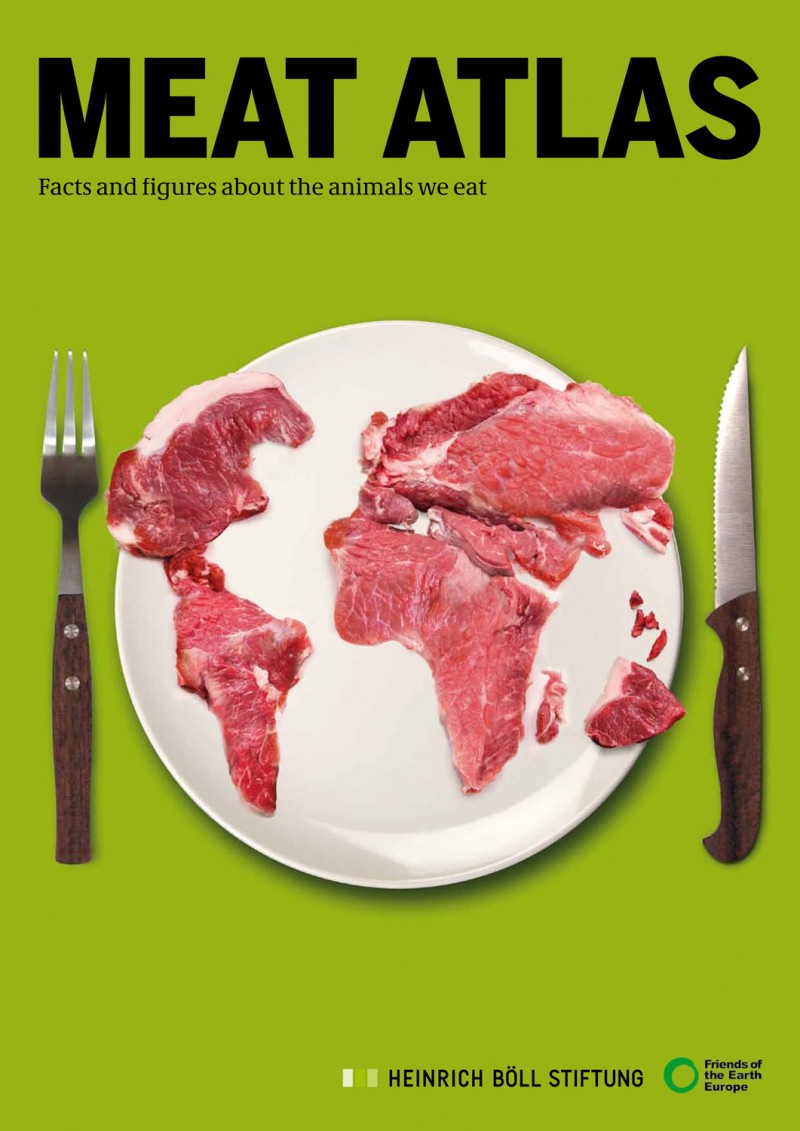
Meat Eater’s Guide to Climate Change & Health

Meat Kills


